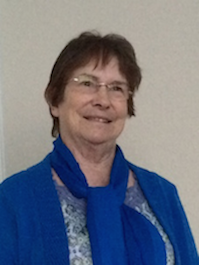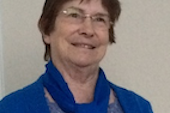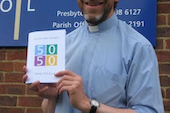NJPN Blog: Let us dream with Pope Francis!

Celia Capstick
I once stood between two tall bishops and asked them whom they considered to be more moral: men or women? Unhesitatingly they answered 'women'. Wisdom is depicted as a woman in the sacred texts. Why then is a woman not allowed to share this morality and wisdom in the Church?
In 'Let us dream' Pope Francis muses on the leadership, practicality and resilience shown by women in the pandemic. His admiration for women economists, who have replaced the old economic models of continuous growth with regenerative, sustainable models closer to the principles of Laudato Si', has led him to appoint them to Vatican dicasteries. Elsewhere he has condemned 'clericalism', the patriarchal power of the priesthood in the Church. He has now called the whole Church to join him on a synodal journey and asks us to be bold in our vision for the Church of the future. We are to listen especially to those on the margins and above all to the Holy Spirit as it 'renews the face of the Earth'.
Perhaps too the stain of the child abuse scandal which continues to flood darkly to this day throughout the Church is influencing the desire for change. Cover ups and lack of compassion for the victims still seem to predominate in the Church's response. Sr Veronica Openibo SHCJ, in her challenge to the assembled hierarchy, called for institutional change. Could the synod bring about the changes needed to address this monumental issue? If women had been more involved at every level in the Church would this have happened to such a vile extent? We can only surmise.
Responses to the Synod are being channeled mainly through parishes and then to the dioceses. Parishes have responded in a variety of ways. In my parish we have been sent a form which has helped to clarify my thinking in a positive way. It asked: what brings you joy in belonging to your faith and faith community? Thinking about my parish made me realise how much it meant to me and my family as we were growing up. It was the core of our family life. The sacraments marked and gave grace at the important stages of our Christian lives thus the Church was there at our most joyful and saddest moments.
The yearly cycle of readings and Masses provides stability and purpose to our lives, unites us with those who have died and directs us to a hopeful future. But in recent times this has all become less relevant to the modern world and the Church needs to change if it is going to fulfill its mission of changing the world. Pope Francis calls us to dream.
I dream of a parish community of the future which is lay led. Lay men and women will have received theological, spiritual and liturgical formation which will enable them to run parishes. Women religious as well as men will be deacons and maybe priests. No longer will the priest be the sole authority - it will be a prayerful discerning partnership. In this way clericalism will gradually lose its domination. Celibacy will be optional and the inclusion of women at every level will bring another dimension to the message of the gospel. After all, it was Mary Magdalen, as the Pope notes, who first received the news of the Resurrection and became known as 'the apostle to the apostles'. It will be a parish community that accepts and welcomes those on the margins such as lesbian and gay couples, and single mothers. It will promote racial justice and guide those fleeing domestic violence and other victims of abuse. A spirit of renewal will sweep through the Church, forgiving and welcoming rather than excluding those whose marriages have failed and have remarried or have questioned traditional thinking. It will be a Church which loves and includes sinners as Jesus did.
Joy too will come from belonging to a Church and parish which looks outward and, with Catholic Social Teaching at its heart, can put faith into action. Ecumenically, we will share with other Christians everything we have in common rather than highlighting our differences. Similarly with other faiths whose God may well have features like ours. We will work together, especially with our altruistic young people, on the great social issues of our times: war and peace, poverty, refugees, reform of the prison system, violence against women and girls, trafficking and the environment to name just a few. An updated edition of The Common Good published by the Bishops of England and Wales 25 years ago will provide the principles for this faith in action and will also include the insights of Fratelli Tutti and Laudato Si' and the just concerns of women.
This is a personal dream and not one necessarily held by all the members of the National Board of Catholic Women (NBCW) but the Pope is asking for everyone's views and the Board would like to collect the views of as many women as possible so that our submission truly represents the women of England and Wales. Please email your comments to nbcwsynod@gmail.com by 9 March or check with the website: www.nbcw.co.uk.
Celia Capstick is co- convener of the NBCW Social Responsibility Committee.


















